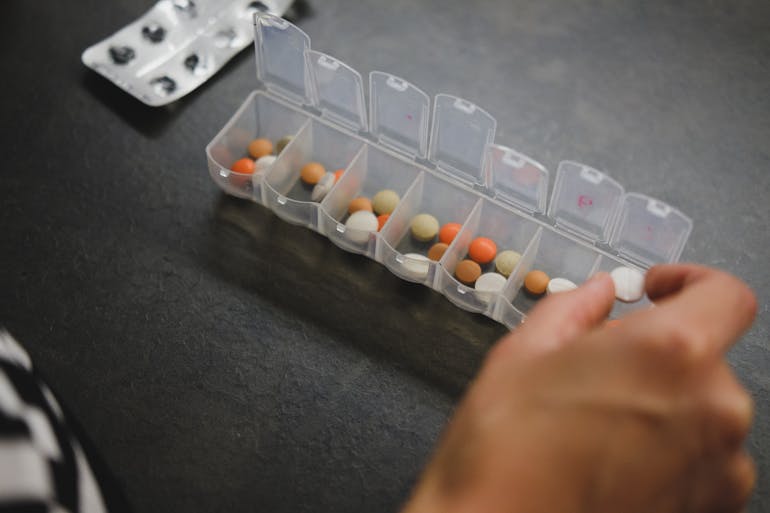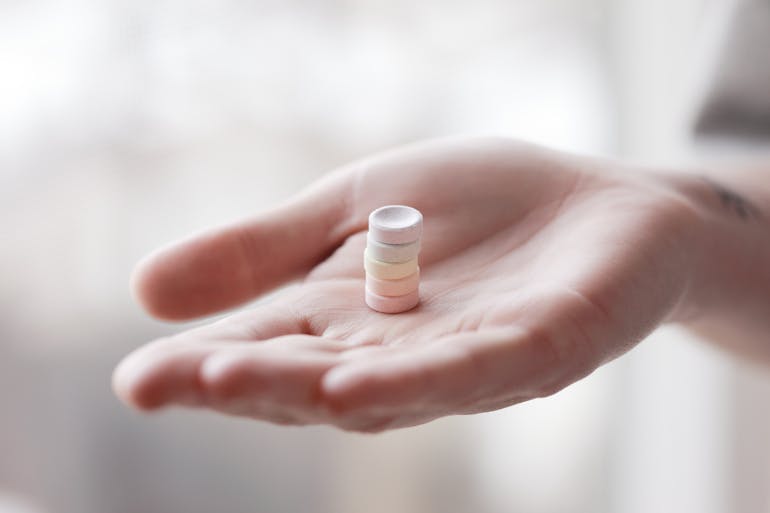Antibiotic resistance — what you wish you knew
Reviewed and fact-checked by Giulia Guerrini, Superintendent Pharmacist. Read our editorial policy to see how we create informative, accurate content.
First, let us hit you with the facts:
- 25k: The number of people who die each year across Europe from infections resistant to antibiotics.
- 33 years: The period of time since a new class of antibiotics for human treatment was last introduced, despite the fact that growing numbers of bacterial and viral infections are resistant to antibiotics. Since 1984, no new registered classes of antibiotics for human treatment have been developed.
- 10 million: Estimated number of yearly deaths globally by 2050 if we do not act now.
- 1 in 3: People in England take at least one course of antibiotics each year.
- Antibiotic-resistant bloodstream infections continue to rise in England, with a 35% increase from 2013 to 2017.

What is antibiotic resistance?
The risks of antibiotic resistance have been a hot topic from health researchers in recent years. They’re still being used unnecessarily, which reduces their effectiveness over time.
Here’s a simple analogy for you: imagine two people in a fight. One has the upper hand, they’re much stronger and have bigger and better weapons. But over time, the underdog learns how to be faster and dodge them. The underdog is now much harder to fight, they know new tactics to try and win.
Public Health England warns that taking antibiotics when you don’t need them puts you and your family at risk. Antibiotics are important in treating serious infections, but we’ve seen increased use of them for cough, sore throats, and ear infections which can get better by themselves.
We have seen improvements in prescribing over the last five years but there’s still some way to go.
How do they lose their effectiveness?
Antibiotics work by killing bacteria, fungi, parasites, and viruses. This is why they’re commonly prescribed for urinary tract infections (UTI’s), acne, chest infections, thrush, and cystitis.
But now we have an increasing number of these microbes that are able to resist the effects of these antibiotics. This is called Antimicrobial Resistance.
Infections caused by such microbes are termed drug-resistant infections. This can lead to antibiotics becoming less effective. This can lead to more deaths and more complications for people receiving treatment. We have to tackle this problem before it gets worse.
Misuse of antibiotics can include any of the following:
- When antibiotics are prescribed/taken unnecessarily
- When antibiotic administration is delayed in critically ill patients
- When broad-spectrum antibiotics are used unnecessarily or when narrow-spectrum antibiotics are used incorrectly
- When the dose of antibiotics is lower or higher than appropriate for the specific patient
- When the duration of antibiotic treatment is too short or too long
- When antibiotic treatment is not guided by microbiological culture data results
What might happen?
If bacteria become ‘resistant’ to our antibiotics, many routine treatments will again become increasingly dangerous. Setting broken bones, basic operations, even chemotherapy all rely on access to antibiotics that work.
- Over three million surgical operations and cancer treatments a year could become life-threatening without antibiotics.
- By 2050, deaths attributable to antimicrobial resistance (AMR) could be as high as 10 million a year.
- A failure to address antibiotic resistance could cost £66 trillion in lost productivity to the global economy.
- Experts predict that in just over 30 years antibiotic resistance will kill more people worldwide than cancer and diabetes combined.
- Antibiotic resistance adds over £1 billion to hospital treatment and societal costs in the EU.
- Three cases of extreme drug-resistant gonorrhoea have now been detected globally- two in Australia, one in England.
- Cancer patients are also much more vulnerable if antibiotics don’t work; both cancer and the treatment (chemotherapy) reduce the ability of the immune system to fight infections and antibiotics are critical to both prevent and treat infections in these patients.
What can I do?
- As an online pharmacy, you can ask our medino pharmacist to recommend medicines to help treat cold or flu symptoms or pain.
- Take antibiotics exactly as prescribed, never save them for later, never share them with others.
- To spread the word, tell their friends and family about antibiotic resistance.
It’s important that, when it comes to antibiotics, you always take your doctor, nurse or healthcare professional’s advice. If you are using antibiotics be it for chest infection UTI, cystitis or any other common infections you might find probiotics useful. Probiotics help restore the natural balance of bacteria in your gut when it has been disrupted.
For further information on antibiotic resistance visit nhs.uk/antibiotics and antibioticguardian.com.

